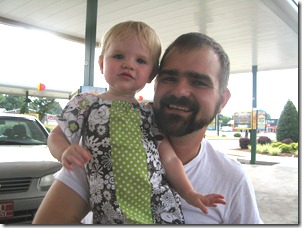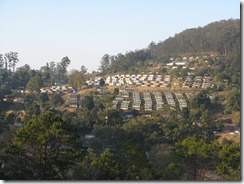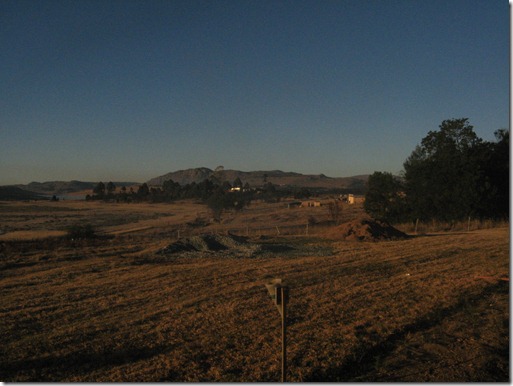Fair salaries and the Kingdom of God
Last week at church we ended a 1.5 month sermon series on the Kingdom of God by discussing what it means to participate in the Kingdom; one of the passages we looked at was Mat 20:1-16, the Parable of the Workers in the Vineyard. The main point is that in the Kingdom everyone is compensated fairly, but not necessarily equally.
That reminded me of an article I had read recently about the link between pastor’s salaries and church growth:
The researchers examined whether pastors earned more in years when their churches saw congregations grow and their pay suffer if membership declined. It turns out United Methodist congregations gave their leaders a $15 boost (in 2008 dollars) on average for each new member added (about 3 percent of new revenues generated from the membership increase) and cut their pay by about $7 for each member lost.
[You can read the whole article here on Slate: The Almighty Dollar: Are preachers motivated by the desire to save souls or to make cold, hard cash?]
Things like this give me great pause as I ponder what is the most faithful, biblical, and fair way to handle financial compensation for those working in the church.
I have long stated that people in ministry should not expect to make more than the average household income for the community they are called to serve (That is a bit over $30K here in Warren County). Of course I don’t see that as a hard-fast rule, but rather as a starting point; in fact, I struggle with the idea of pastors getting paid at all – but that is for another post.
In a multiple-staff situation things get even more complex. What is fair compensation for everyone when we are willing to think about it “Kingdom” terms? Here are a few models I think we can consider:
- Compensate based on “market” value – unfortunately this is the way most churches operate without even considering other options. This approach forces a business mindset and causes people to think about “moving up the ladder.”
- Compensate equally – pay everyone the same wage regardless of their position. The full time janitor makes the same as the senior pastor.
- Compensate based on skills / training – a cross between the two approaches above. The doctor makes more than the M.Div who makes more than M.A. who makes more than the college grad… This approach doesn’t value one role over another, but does reward people who made the financial / educational sacrifices to be better prepared. You could easily extend this thinking to compensate for years of work, additional training / skill sets, etc.
- Compensate based on need – The young married couple has less financial need than the single father living with his two kids, or the older lady who has high medical expenses and is taking care of her parents. This approach is the most selfless of all, but the hardest to implement.
- These questions are especially difficult (and important) when you start working through real situations. I came from a multiple-staff church where how you answer the “fair compensation” question would have major impact on people. We had a 5:1 pay ratio (the highest paid full-time staff member made at least 5 times what the lowest paid full-time staff member made), a wide variety of education levels (High School educated up to M.Div and everything in between), a huge span of years of service (fresh into ministry up to several decades), and an extremely diverse set of living situations (stable married couples without kids, up to individuals with major medical expenses and other extenuating circumstances).
I don’t think there is a right answer to these questions (although I do think there are plenty of wrong ways to handle it). The big problem is that people generally refuse to discuss these matters. If you want to know the quickest way to shut people up in a staff meeting, then just suggest you talk about salaries.
It is generally assumed that all churches will take the first approach and simply pay based on market value. The problem with this is that is short-circuits meaningful discussions about the theology of ministry and the call to live by "Kingdom" standards. People in ministry are paid through the tithes and offerings of people who believe they are contributing to God’s work. At a minimum, we all should expect those in ministry to think long and hard about what is the best use of God’s finances when it comes to compensating staff fairly.
When you take the "market value" approach to ministry it forces you to only look inward. All of the other approaches require ministers to contemplate the Kingdom as a whole and also to consider the situation and contributions of those they serve with. It is not easy, but I think all of our churches would be better off if we at least entertained the question.
A church where the senior pastor makes the same as (or less than) the janitor would certainly turn a few heads, and I am convinced it is a more accurate implementation of the lessons from Matthew 20. Just imagine how strong a church’s witness could be if they compensated based on Kingdom standards instead of worldly value. It would certainly force people to take the message of the Kingdom of God serious if ministers were willing to "step out on faith" and change the way they viewed their salaries.
How can we expect those in the church to earnestly seek their place in the work in the Kingdom, if we do not evaluate some of these basic and essential questions about how the church operates.
Thoughts?








